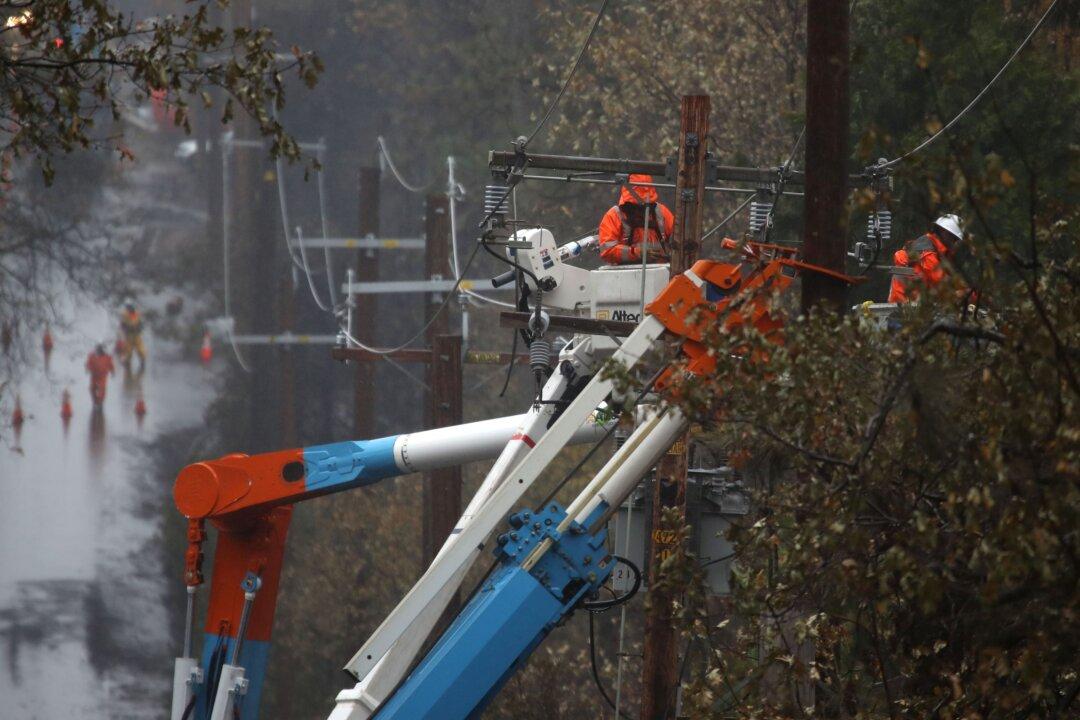A bankruptcy court filing from Pacific Gas &Electric (PG&E) on Nov. 29 claimed recent power shutoffs in Northern California helped prevent sparking on electrical power lines damaged by vegetation nearly 200 times, according to the Sacramento Bee.
During several blackouts in October, falling trees and limbs damaged power lines 260 times, while 190 of those instances were likely to cause sparks that could have started a wildfire, the company stated.





